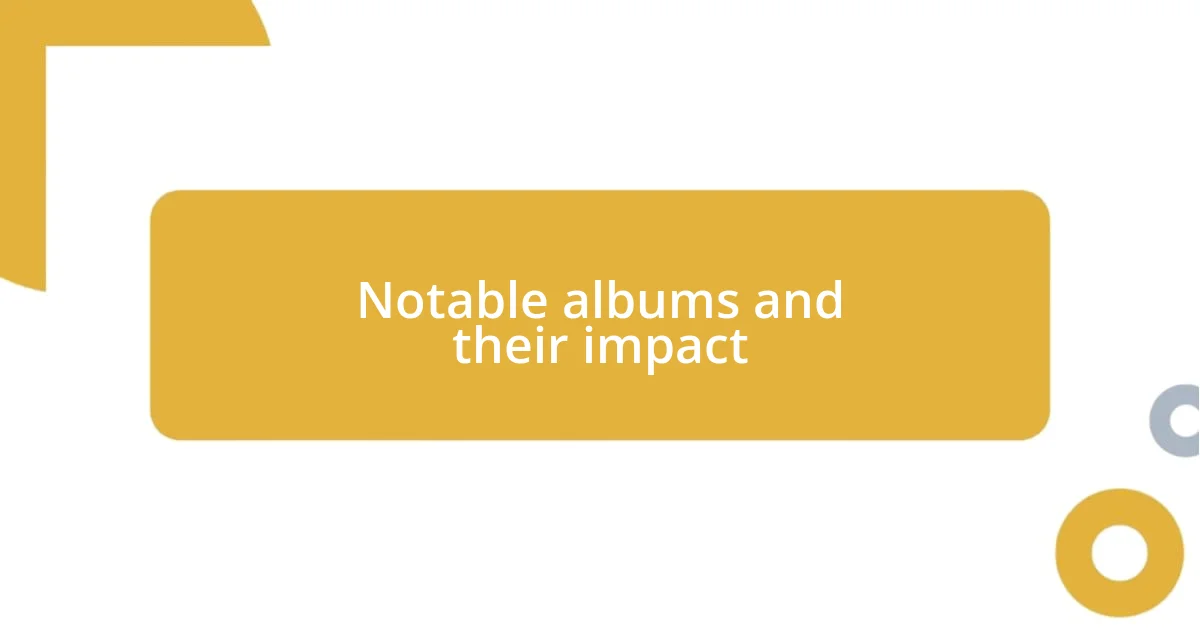Key takeaways:
- The 90s alternative rock scene emerged from underground movements, with bands like Nirvana and Pearl Jam capturing the essence of youth and discontent.
- Alternative rock is characterized by its diverse sounds, emotional authenticity, and themes of alienation, love, and social issues.
- Notable albums like Nirvana’s *Nevermind*, Radiohead’s *OK Computer*, and Pearl Jam’s *Ten* significantly impacted cultural perceptions of personal struggles and societal disillusionment.

Introduction to 90s alternative rock
The 90s alternative rock scene was a melting pot of sounds, emotions, and rebellious spirit. I remember flipping through radio stations, catching snippets of songs that felt raw and unfiltered. Isn’t it fascinating how each track seemed to capture the essence of youth and discontent, inviting listeners to feel seen and understood?
Emerging from the underground, bands like Nirvana and Pearl Jam became the voice of a generation grappling with societal pressures and personal struggles. When I first heard “Smells Like Teen Spirit,” it felt like a rallying cry, resonating with my own feelings of alienation. Can you recall that exhilarating moment when a song perfectly encapsulated your mood?
As grunge and post-punk flourished, the genre birthed new subcultures. I found myself amidst a community of friends who shared playlists filled with everything from The Smashing Pumpkins to Radiohead. Those songs transported us to a world where introspection and angst coexisted, sparking a sense of belonging that felt incredibly important during those formative years.

Defining the alternative rock genre
Alternative rock is often characterized by its diverse sound, blending elements from various genres while retaining an ethos of independence and experimentation. In my experience, what sets it apart is the lyrical authenticity, dealing with themes like alienation, love, and social issues. I can still clearly remember when I first encountered those jangly guitars and introspective lyrics; every chord struck a profound chord within me.
- Defined by its roots in punk, post-punk, and new wave
- Embraces a DIY approach, often shunning mainstream commercialism
- Features diverse subgenres, including grunge, shoegaze, and britpop
- Known for its emotionally charged lyrics that resonate deeply with listeners
- Focuses on originality and artistic expression over polished production
Each element of alternative rock, from its raw sound to its poignant lyrics, painted a vivid picture of a generation’s feelings. I remember attending a small local gig, the energy palpable, where a band’s unfiltered passion made us feel part of something bigger. In those moments, alternative rock wasn’t just music; it was a lifeline that connected us, reminding us that we weren’t alone in our struggles.

Notable albums and their impact
I think back to Nirvana’s Nevermind, released in 1991, and how it exploded into public consciousness. When “Come as You Are” hit the airwaves, it wasn’t just a song; it was a manifesto for misfits. The album’s raw production and honest lyrics painted a picture of disillusionment that resonated deeply with my peers and me. I often wondered if Kurt Cobain ever realized how he captured the tangled feelings of an entire generation.
Meanwhile, Radiohead’s OK Computer in 1997 pushed the boundaries of what alternative rock could be with its intricate soundscapes and existential themes. I remember listening to it late at night, feeling as if the music was peeling layers off my understanding of modern life. Every track, from “Paranoid Android” to “No Surprises,” sparked introspection and a sense of awareness that was both frightening and liberating. Has any album ever made you question the world around you quite like that?
Then there’s Ten by Pearl Jam, which had a profound impact on how personal struggles were approached in music. Its exploration of themes like addiction and heartbreak was a lifeline for so many of us. Listening to “Black,” I often found myself in tears, completely absorbed in the emotional weight of the song. Those echoes of sadness and authenticity allowed me to confront my own feelings, showcasing how powerful music can be as a means of catharsis and connection.














